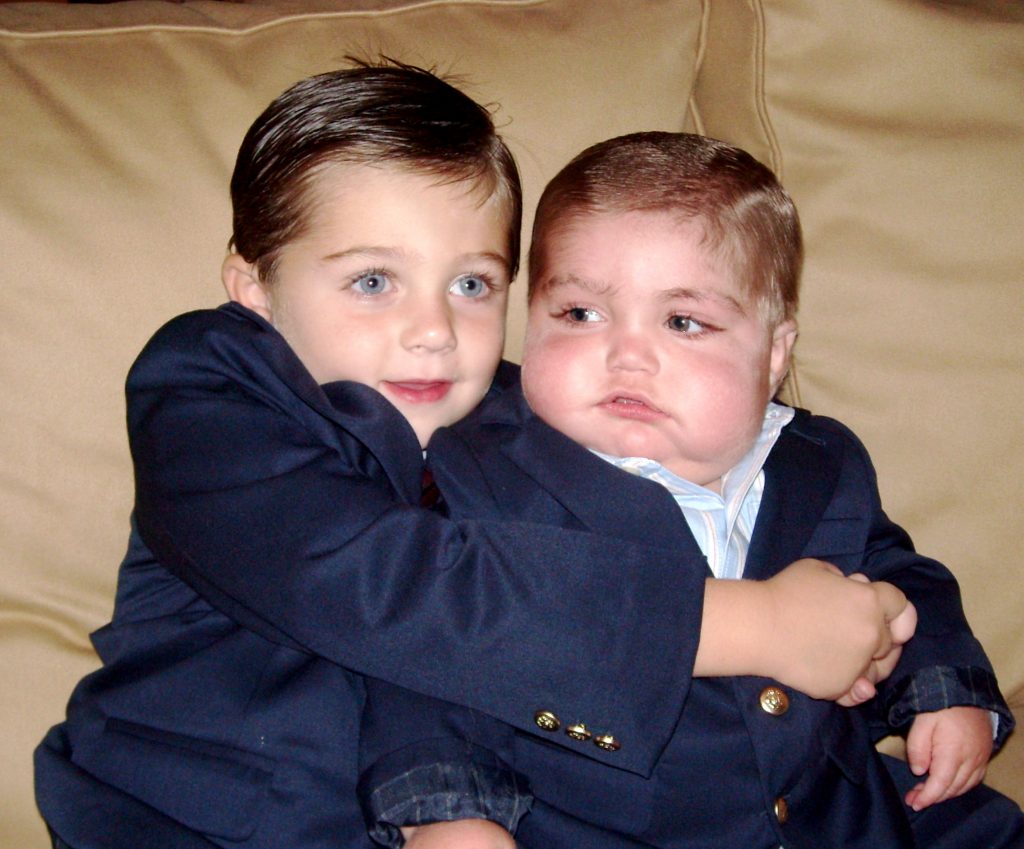Our Disease
What is Hemophagocytic Lymphohistiocytosis?
HLH stands for Hemophagocytic Lymphohistiocytosis and is a life-threatening immunodeficiency. It affects people of all ages and ethnic groups. Common symptoms are fevers, enlarged spleen, low blood counts and liver abnormalities. At least half of the patients with Hemophagocytic Lymphohistiocytosis will also experience inflammation of the brain which can lead to a wide variety of neurologic problems.
Hemophagocytic Lymphohistiocytosis has traditionally been divided into genetic forms (Familial or FHLH) or acquired forms which may be associated with infections, autoimmune conditions or cancer. HLH patients have overactive histiocytes and lymphocytes, which are white blood cells that can cause swelling, redness, heat, pain and malfunction/damage of organs when they attack and accumulate on healthy lymph tissue (ed: Liver, Spleen, Lymph Nodes). To date, 7 genetic causes of FHLH have been discovered, accounting for about 60% of childhood cases in the U.S.A. FHLH can be inherited in either an autosomal recessive manner (where both parents are carriers) or in an x-linked manner affecting only males. HLH is considered to be rare, but specific incidence is unknown.
The symptoms result from an overactive and poorly controlled immune response involving T lymphocytes and macrophages. This abnormally intense immune response results in prolonged and highly elevated levels of cytokines (molecules which, in minute quantities, normally regulate immune functions). This so-called “hypercytokinemia” is potentially damaging to all the major vital organs. The hallmark of hypercytokinemia is Hemophagocytosis, the process for which the disorder is named. Hemophagocytosis is an abnormal consumption of blood cells by macrophages which are turned on by the high cytokine levels, resulting in the low blood counts.
While some patients experience symptoms which can wax and wane or respond well to steroids initially, many patients suffer from progressive illness which can lead to death if appropriate immune suppressive treatment is not begun in time. Ultimately, children and young adults who have HLH on the basis of known genetic defects will require a hematopoietic cells transplant (BMT) to cure them. Patients without a known genetic cause who experience progressive HLH or recurrent episodes are also considered for BMT. At present, with the more widespread use of Reduced Intensity Conditioning (RIC) protocols accompanied by careful selection of donor and stem cell product to be used – long term survival rates after HCT have improved from 50-70% up to 90% in experienced HCT centers.
HLH is not a cancer. Over the years cancer treatments have been used in patients with HLH. Consequently, Hematologists and Oncologists who treat cancer also treat children with HLH.
Because the disease is relatively new from a research perspective (1985) and causes as well as symptoms are still being discovered, may cases go undiscovered (or too late) and lead to fatality for the patient. It is important to catch the illness early.
The Doctors at Cincinnati Children’s Hospital treat more cases of HLH each year than any other pediatric hospital in the United States. Dr. Lisa Filipovich at Cincinnati Children’s is regarded as the world renowned expert on this rare immune disorder.
If your child has been diagnosed with HLH, ask your doctor to run the genetic testing to see if the genetic mutation can be found. Our recommendation is to get your child to a hospital that has treated multiple cases of HLH in the past and has access to Novimmune’s NI-0501 drug and/or the HIT study (Hybrid ImmunoTherapy). It is also important to be at a hospital that specializes in bone marrow transplants. Do everything possible to increase the odds of a positive outcome.
To learn more about HLH please visit http://www.cincinnatichildrens.org/service/h/hlh/about/ or to contact the experts at Cincinnati Children’s Hospital, please visit https://go.cincinnatichildrens.org/service/hlh/contact.php







